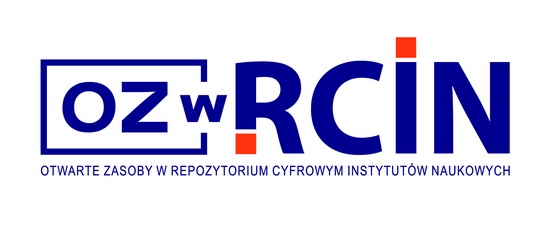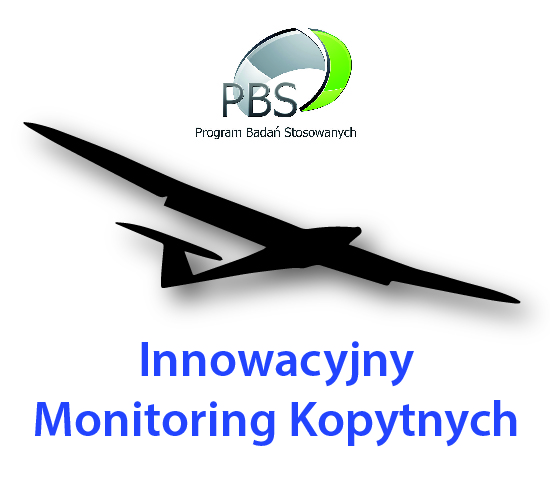Repozytorium Cyfrowe Instytutów Naukowych - informacje o projekcie

Repozytorium Cyfrowe Instytutów Naukowych
Informacje o projekcie

Biblioteka Muzeum i Instytutu Zoologii PAN uczestniczy w budowie Repozytorium Cyfrowego Instytutów Naukowych. Projekt realizowany jest w okresie od marca 2010 do marca 2014 i finansowany ze środków Programu Operacyjnego Innowacyjna Gospodarka Oś priorytetowa 2. Inwestycje związane z rozwojem infrastruktury informatycznej nauki w ramach poddziałania 2.3.2 Projekty w zakresie rozwoju zasobów informacyjnych nauki w postaci cyfrowej.
Zasadniczym celem Projektu jest utworzenie ogólnodostępnego w sieci Internet, ponadregionalnego, multidyscyplinarnego, pełnotekstowego, przeszukiwalnego Repozytorium Cyfrowego złożonego ze zdigitalizowanych publikacji naukowych, materiałów archiwalnych, dokumentacji badań oraz piśmienniczego dziedzictwa kulturowego wyselekcjonowanych ze zbiorów 16 polskich instytutów naukowych oraz ich bibliotek tworzących Konsorcjum Repozytorium Cyfrowego Instytutów Naukowych, na którego czele stoi Muzeum i Instytut Zoologii PAN.
Celami szczegółowymi Projektu są:
- modernizacja infrastruktury naukowo-badawczej i informatycznej 16, jednych z najlepszych polskich jednostek naukowych reprezentujących zarówno nauki ścisłe, przyrodnicze, medyczne, jak i humanistyczne;
- zwiększenie cyfrowych zasobów Internetu o wartościowe polskie treści publikacji naukowych wydawanych przez członków Konsorcjum (monografii naukowych, czasopism, wydawnictw seryjnych, map i atlasów) i jednoczesne upowszechnianie wyników badań własnych Instytutów, co przełożyć się powinno na wzrost ich cytowalności;
- zabezpieczenie dla przyszłych pokoleń bieżącego dorobku naukowego Instytutów Konsorcjum poprzez zbudowanie Archiwum cyfrowego Instytutów Konsorcjum (archiwizacja plików matek);
- umożliwienie ogółowi dostępu do pozycji udostępnianych obecnie tylko wyjątkowo nielicznej grupie badaczy (stare druki książki i mapy, rękopisy, czasopisma, zdjęcia, kartoteki i pozycje zachowane tylko w jednym egzemplarzu w Polsce, a nawet na świecie, itp.) i zabezpieczenie ich dla przyszłości, poprzez cyfrową archiwizację tych wyselekcjonowanych pozycji. Wiele z tych historycznych zbiorów aktualnie służy badaniom naukowym, np. historyczne mapy są pomocne w badaniach nad zmianami globalnymi.
- zwiększenie dostępności do pozostałych wyselekcjonowanych unikalnych materiałów współczesnych i historycznych, gromadzonych w Instytutach Konsorcjum m.in. w postaci rękopisów prac doktorskich, specjalistycznych kartotek czy dokumentacji badań;
- promocja polskiej nauki, historii, kultury i walorów środowiska przyrodniczego w świecie poprzez obecność zasobów Repozytorium Konsorcjum w bibliotece cyfrowej Unii Europejskiej Europeana oraz zwiększenie dostępności tych zasobów dzięki dodaniu bezpośrednich do nich linków w katalogach on-line Bibliotek Instytutów Konsorcjum oraz katalogach ogólnopolskich NUKAT i Karo, a pośrednio także w światowym katalogu WorldCat;
- odbudowa młodej kadry poprzez zatrudnienie w Projekcie absolwentów uczelni wyższych, oraz udział w pracach merytorycznych doktorantów Instytutów Konsorcjum.
- wsparcie edukacji, w tym edukacji na odległość i wyrównywanie szans młodzieży pochodzącej spoza ośrodków wielkomiejskich poprzez wzbogacenie treści cyfrowych Internetu o zasoby cyfrowe dotychczas niedostępne chociażby z powodu praw autorskich, a służące m.in. dydaktyce na różnych poziomach nauczania;
- podnoszenie umiejętności użytkowników bibliotek naukowych Konsorcjum w zakresie wyszukiwania literatury naukowej w wartościowych zasobach Internetu w ramach spotkań informacyjnych promujących Projekt.
- pomoc merytoryczna i organizacyjna mniej zaawansowanym członkom Konsorcjum, która umożliwi włączenie wyników badań ich Instytutów do światowego obiegu informacji;
W ramach Projektu planowana jest cyfryzacja ponad 25 tysięcy pozycji ze zbiorów Bibliotek i Instytutów Konsorcjum, przy czym jest to drobna część ich kolekcji. Biblioteki Konsorcjum posiadają łącznie ponad 2 miliony woluminów zbiorów (dane z 31.12.2009 r.). Realizacja Projektu stanowić będzie dopiero dobry początek wielkiej pracy czekającej Instytuty, które będą chciały pokazać Światu swój dorobek naukowy (pięć spośród 16 Instytutów tworzących Konsorcjum posiada biblioteki zaliczone do Narodowego Zasobu Bibliotecznego). Praca ta jest jednak konieczna do wykonania, gdyż obecnie nie da się prowadzić prac technicznych, naukowych i służebnych gospodarce bez szybkiej i wiarygodnej informacji dostępnej poprzez Internet. Potrzebna jest ona czytelnikom Bibliotek uczestniczących w Projekcie, a więc finansistom, geodetom, drogowcom, farmaceutom, naukowcom, numerykom i wielu, wielu innym specjalistom.
Repozytorium Cyfrowe Instytutów Naukowych będzie ogólnodostępną platformą dostępu do cyfrowych zbiorów zarówno dla środowiska naukowców, pracowników gospodarki, pracowników informacji naukowej, ale też uczniów, studentów i całego społeczeństwa.
Zdigitalizowane zbiory będą udostępnione w Internecie na platformie Repozytorium utworzonego za pomocą systemu dLibra , który jest standardem obecnie używanym w Polsce.
W projekcie RCIN uczestniczą:
- Instytut Archeologii i Etnologii Polskiej Akademii Nauk
- Instytut Badań Literackich Polskiej Akademii Nauk
- Instytut Biologii Doświadczalnej im. Marcelego Nenckiego Polskiej Akademii Nauk
- Instytut Biologii Ssaków Polskiej Akademii Nauk
- Instytut Chemii Fizycznej Polskiej Akademii Nauk
- Instytut Chemii Organicznej Polskiej Akademii Nauk
- Instytut Filozofii i Socjologii Polskiej Akademii Nauk
- Instytut Geografii i Przestrzennego Zagospodarowania im. Stanisława Leszczyckiego Polskiej Akademii Nauk
- Instytut Historii im. Tadeusza Manteuffla Polskiej Akademii Nauk
- Instytut Języka Polskiego Polskiej Akademii Nauk
- Instytut Matematyczny Polskiej Akademii Nauk
- Instytut Medycyny Doświadczalnej i Klinicznej im. Mirosława Mossakowskiego Polskiej Akademii Nauk
- Instytut Podstawowych Problemów Techniki Polskiej Akademii Nauk
- Instytut Slawistyki Polskiej Akademii Nauk
- Instytut Technologii Materiałów Elektronicznych
- Muzeum i Instytut Zoologii Polskiej Akademii Nauk
Do realizacji Projektu konieczne było utworzenie 5 pracowni skanowania, wyposażonych
w specjalistyczne skanery (w tym dziełowe, pozwalające na bezpieczną digitalizację pozycji dawnych), obsługujących rotacyjnie wszystkie Instytuty, realizując zgłaszane przez nie potrzeby.
GŁÓWNA PRACOWNIA SKANOWANIA – MUZEUM I INSTYTUT ZOOLOGII PAN:
- dwa ScanRoboty 2.0 MDS
- skaner Bookeye 3 formatu A2
- skaner mikrofilmów Mekel M200 ViewScan
- stanowisko do reprodukcji Kaiser z aparatem fotograficznym Nikon
PRACOWNIA SKANOWANIA INSTYTUT GEOGRAFII I PRZESTRZENNEGO ZAGOSPODAROWANIA PAN:
- skaner dziełowy Bookeye 3 formatu A1
- skaner dziełowy Bookeye 3 formatu A2
PRACOWNIA SKANOWANIA INSTYTUT BADAŃ LITERACKICH PAN:
- skaner dziełowy Bookeye 3 formatu A2
PRACOWNIA SKANOWANIA INSTYTUT JĘZYKA POLSKIEGO PAN:
- skaner szczelinowy Scamax 402 BD
- skaner dziełowy Bookeye 3 formatu A1
PRACOWNIA SKANOWANIA INSTYTUT ARCHEOLOGII I ETNOGRAFII PAN:
- skaner do negatywów z przystawką do mikrofilmów Canon MS35OII
- skaner szerokoformatowy do map i wykresów Wide Tek36
- skaner dziełowy Bookeye 4 do formatu A2
Serwer dLibra – oprogramowanie dLibra obsługujące RCIN w sieci umieszczone jest na nowym serwerze kasetowym w przebudowanej dla celów Projektu Serwerowni Instytutu Biologii Doświadczalnej PAN.
Kontakt
Muzeum i Instytutu Zoologii
Polskiej Akademii Nauk
Biblioteka
ul. Twarda 51/55, 00-818 Warszawa
e-mail: This email address is being protected from spambots. You need JavaScript enabled to view it.
Telefony:
* czytelnia i wypożyczenia, informacja o zbiorach: (22) 629 32 21 w. 59, 52
e-mail: This email address is being protected from spambots. You need JavaScript enabled to view it.
* wypożyczalnia międzybiblioteczna: (22) 629 32 21 w. 59
e-mail: This email address is being protected from spambots. You need JavaScript enabled to view it.
* sprzedaż wydawnictw: (22) 629 32 21 w. 15
e-mail: This email address is being protected from spambots. You need JavaScript enabled to view it.
Services
ACCESSIBILITY
The Reading Room is open to all
Monday-Friday, 08.30 - 15.30
LENDING
The Lending Library is open Monday-Friday, 08.30 - 15.30
Accessible to authorised persons
COPYING SERVICES
| COPYING SERVICES | price |
| A4 single-sided | 40 gr. |
| A4 double-sided | 80 gr. |
| A3 single-sided | 70 gr. |
| A3 double-sided | 1,40 zł |
MiIZ-PAN is not a VAT payer and cannot write out invoices.
It can present receipts
Requests for photocopying may be submitted by means of correspondence:
Muzeum i Instytut Zoologii
Biblioteka
ul. Wilcza 64
00-679 Warszawa
Requests for photocopying sent by post or e-mail shall contain the following information:
Journal title
Year
Volume
Pages
Name of the first author
The first three words of the title
At any given time, requests for a maximum of 10 articles shall be processed
Requests will be dealt with on a first-come, first-served basis
Requests should also include:
the name and address of the submitting party
the name and address of the invoice payer
The Library Rules
The Rules of the Reading Room and Library of the Museum and Institute of Zoology, Polish Academy of Sciences
1. The Library’s task is to make available the Library Collection of the Museum and Institute of Zoology PAS, in the interests of science, teaching and the popularisation of the natural sciences.
2. Books in the Library Collection are made available to all interested in the relevant subject matter.
3. Responsibility for the Library Collection as a valuable public good is conferred upon the user thereof, who bears the material liability in the event of damage, destruction or loss.
4. The Library’s operating hours are as determined by its Manager, in agreement with the Director of the Museum and Institute of Zoology PAS, the public being informed of the opening and closing times.
5 .Users of the Reading Room are obliged:
• to familiarise themselves with the Regulations of the Reading Room and Lending Library and to meet the requirements thereof precisely,
• to register their presence in the book for users of the Reading Room, and – where those concerned are from outside the Museum and Institute of Zoology PAS – to fill out a reader’s card and to leave an identity document with the Librarian on duty for the duration of their visit,
• to declare to the Librarian on duty any of his/her own materials that are brought into the Reading Room,
• to declare to the Librarian on duty any shortcomings of, or instances of damage to, publications made available to him or her,
• to leave outside clothing, briefcases, bags, etc., in the places designated therefor,
• to remain quiet and respect order, and to not smoke or eat on the Reading Room premises.
6. In the Reading Room, use may be made of:
• the collection of books and current publications on display in the Reading Room, on condition that publications to be consulted are removed directly from their places on the shelves and then returned after use to the Librarian on duty,
• the Library’s Main Collection, accessed by means of request slips filled out legibly and signed separately for each item up to a maximum of 5 requests at a time, the submissions being made no later than 30 minutes prior to the end of the Reading Room’s working day.
7. Publications needed for a user’s ongoing work on successive days may be reserved in the Reading Room for a period agreed with the Librarian on duty.
”Lending” in the meaning of the Regulations shall not imply lending beyond the premises of the Library of the Museum and 8. Institute of Zoology PAS, where publications:
• were published pre-1945 (in which case lending rights are confined to employees of the Museum and Institute),
• are of particular rarity or importance,
• are in a form (large format) or state of preservation not permitting their use beyond the Reading Room,
• form part of the on-display book collection,
• are of a cartographic nature (in which case, lending rights are confined to employees of the Museum and Institute)
• are doctoral theses
9. Old manuscripts are only made available on the basis of separate regulations.
10. The right to borrow larger collections beyond the Library premises shall be enjoyed by:
• employees of the Museum and Institute of Zoology PAS,
• other libraries (by virtue of the Inter-Library Loan system),
• scientific institutions lacking libraries of their own – under the conditions laid down in point 12.
11. By way of the Library, employees of the Museum and Institute of Zoology PAS shall enjoy the right to draw upon the collections of other libraries in Poland. By way of the National Library, the said employees shall further enjoy the right to draw upon the collections of libraries abroad.
12. Other libraries and institutions not possessing libraries shall enjoy the right to open a borrowing account by virtue of a submitted declaration including a copy of the given institution’s stamp, the signature of its Director, Head or Manager, and an example of the signature of persons authorized to engage in borrowing and assuming the obligation to comply with the requirements of the Library Rules.
13. Scientific employees of the Museum and Institute are entitled to the ”permanent” loan of up to 300 volumes from the Library, albeit on the basis of an obligation that books be returned, or borrowing slips renewed, at five-yearly intervals.
14. Employees taking parental or unpaid leaves, or being seconded elsewhere, for periods in excess of 3 months, are obliged to return all publications borrowed to the Library.
15. Employees leaving the Museum and Institute of Zoology PAS or retiring from employment therein shall return all publications borrowed from the Library prior to the end of their tenure at the institution. With the consent of the Director, scientific staff who have retired may continue to make use of the Library’s collections by virtue of the rules set out in Point 13.
16. Where publications are sought by readers from outside the Museum and Institute, employees thereof are obliged to return publications borrowed within the Reading Room to Library staff, whenever requested to do so.
17 Employees of the Museum and Institute shall not lend publications borrowed in their name on to other individuals or institutions.
18. Employees of the Museum and Institute shall be obliged to make borrowed publications available to the Library for checking not less often than once every two years. Explanations in respect of any absences of publications are to be submitted within one month of discovery.
19. Inter-Library Loan shall only be possible on the basis of request slips filled out legibly and precisely, each requested item on a separate slip, with the signature of an authorized person and bearing the stamp of the Library or Borrowing Institution.
20. The number of libraries and other institutions using the Library’s collections may not exceed 10 at any given time.
21. A Borrowing Library shall be obliged to return borrowed publications within 30 days of their receipt. Requested prolongations of this time limit for returns are to be submitted prior to the expiry thereof. Consent for prolongations of the said time limit shall be dependent on requests submitted by other users. The Library shall send out reminders upon the expiry of the said time limit, and failure to return a borrowed publication thereafter shall result in abstention from any further consideration of requests.
22. Loaned publications shall be sent as valuable items or by registered post, with proper safeguards taken to ensure protection against damage.
23. The Borrowing Library shall be liable for damage done to loaned publications, as well as for any losses thereof.
24. Should a loaned publication be lost or damaged, the user shall be obliged to supply another copy of the same publication, or – in exceptional circumstances – another publication, where the Library Manager, in agreement with the Committee on Losses from the Library Collection recognizes the equivalence of the substitute publication. A user unable to comply with this obligation shall submit a declaration in writing to that effect, and render to the Library a sum equivalent to three times the value of the lost item, at the given time. Where a publication is damaged, the user shall bear the full costs of repair.
25. Failure to comply with the requirements laid down in point 24 will result in steps on the part of the Library to seek redress in court.
26. Where users fail to abide by the aforesaid Rules, the Library reserves the right:
• to demand the return ahead of schedule of publications borrowed,
• to suspend or terminate rights to the use of the Library Collection.
Sprzedaż wydawnictw
Biblioteka prowadzi sprzedaż wydawnictw MiIZ PAN w siedzibie Instytutu, ul. Wilcza 64, w godz. 9.00-15.00 (p. 111, I piętro) oraz sprzedaż wysyłkową.
Oferujemy: czasopisma bieżące i numery archiwalne, serie wydawnicze i książki
Zamówienia można składać:
- poprzez formularze zamówień umieszczone przy każdej publikacji w zakładce Wydawnictwa
- pocztą elektroniczną
- faksem (22) 629 63 02
- telefonicznie 22 629 32 21 w. 15
- listownie na adres Biblioteki
Do cen podanych w katalogu doliczamy koszt wysyłki według cennika Poczty Polskiej. Płatność przelewem, kartą płatniczą, gotówką oraz za pobraniem pocztowym.
The Library Collection
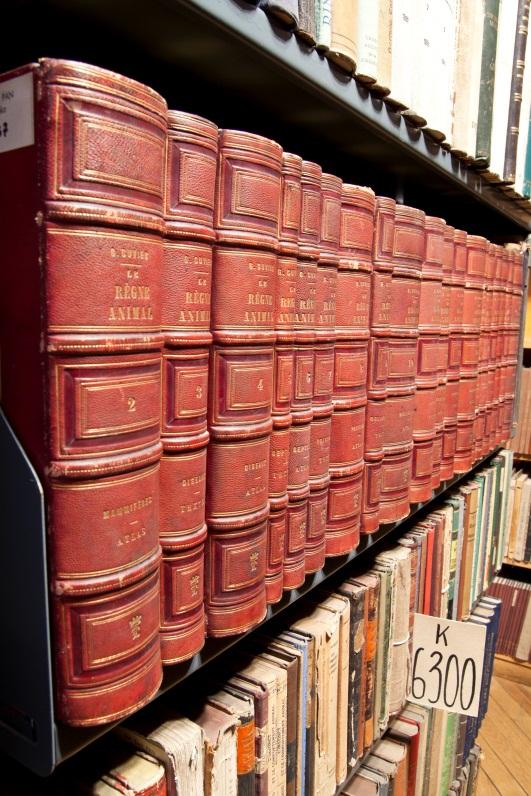 |
The Library brings together Polish and foreign literature concerning systematics and zoogeography, zoology with particular account taken of the aforementioned topics, entomology and ornithology. Publications on genetics and molecular biology have also been the subject of more recent interest.
The Book Collection has been assembled by way of purchases, exchanges and gifts of publications. Status of the Collection as of 31.12.2007 6123 titles |
Biblioteka - strona główna
Muzeum i Instytutu Zoologii PAN
Biblioteka
ul. Wilcza 64, 00-679 Warszawa
www.miiz.waw.pl/biblioteka
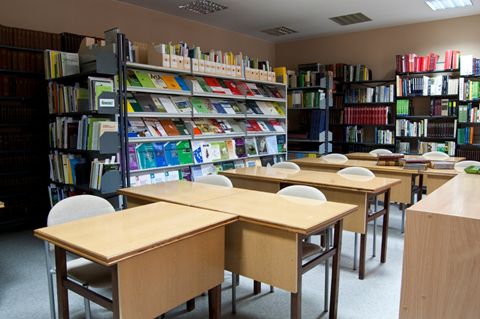
Biblioteka Muzeum i Instytutu Zoologii jest specjalistyczną biblioteką naukową,
gromadzącą literaturę polską i zagraniczną z zakresu zoologii ze szczególnym uwzględnieniem:
systematyki, zoogeografii, entomologii, ornitologii oraz genetyki i biologii molekularnej.
Komputery znajdujące się w czytelni umożliwiają dostęp do bibliograficznych i pełnotekstowych baz danych:
Zoological Record (od 1864 r.), Medine, BioOne, ICM - Wirtualna Biblioteka Nauki m. in.:
Elsevier, Springer, Wiley-Blackwell , EBSCO Publishing (np. baza Academic Search Complete), Web of Science, SCOPUS, AGRO
oraz publikacji i czasopism dostępnych online m. in. Nature, Science, Journal of Systematic Palaeontology.
Od grudnia 2010 r. Biblioteka MiIZ PAN biblioteka współpracuje z Narodowym Uniwersalnym Katalogiem Centralnym NUKAT, współtworzonym przede wszystkim przez polskie biblioteki naukowe, stosujące zintegrowane systemy biblioteczne.
Biblioteka MiIZ PAN uczestniczy w realizacji Projektu Repozytorium Cyfrowe Instytutów Naukowych,
finansowanym ze środków Programu Operacyjnego Innowacyjna Gospodarka.
W ramach tego Projektu Biblioteka digitalizuje własne zbiory wzbogacając zasoby Federacji Bibliotek Cyfrowych.
Planowane jest wyposażenie Czytelni w stanowiska komputerowe przystosowane do użytku przez osoby z niepełnosprawnością narządu wzroku.
History of the Library
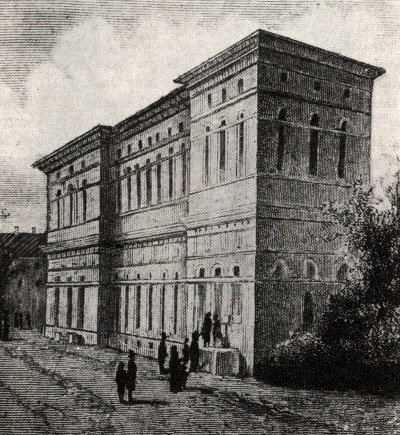 The story of the Library’s book collection links up with the organising in 1819 of the Zoological Cabinet of Warsaw Royal University. Information on that Collection assembled by the Cabinet’s first Custodian, Feliks Paweł Jarocki, makes it likely that books were first and foremost acquired then to make the processing of the Cabinet’s zoological specimens possible. By 1862, Jarocki had accumulated 291 volumes, and this number was increased to 716 during the tenure of his famous successor Władysław Tacznowski. It was at the latter’s initiative, if with financial support on the part of Jan Tadeusz Lubomirski, that the Cabinet’s first publication, Wiadomości z nauk przyrodzonych ("News from the Natural Sciences") was brought out.
The story of the Library’s book collection links up with the organising in 1819 of the Zoological Cabinet of Warsaw Royal University. Information on that Collection assembled by the Cabinet’s first Custodian, Feliks Paweł Jarocki, makes it likely that books were first and foremost acquired then to make the processing of the Cabinet’s zoological specimens possible. By 1862, Jarocki had accumulated 291 volumes, and this number was increased to 716 during the tenure of his famous successor Władysław Tacznowski. It was at the latter’s initiative, if with financial support on the part of Jan Tadeusz Lubomirski, that the Cabinet’s first publication, Wiadomości z nauk przyrodzonych ("News from the Natural Sciences") was brought out.
The main Book Collection of the National Library of the Natural History Museum derived from the private holdings of the Counts Branicki. The Collection was founded in the 1880s, when the Branickis withdraw their support for the Zoological Cabinet, fearing that whatever had been assembled there would simply be hauled off to Russia. After World War I, Ksawery Branicki felt moved to transfer the entire collection to the Museum, along with what had been intended for the National Museum of Natural History.
Post-1919, the Collection grew rapidly, primarily thanks to a large number of donations from home and abroad, as well as exchanges of publications. This was made possible by the establishment of Museum publications, including Annales Zoologici Musei Zoologici Polonici (1921), Fragmenta Faunistica Musei Polonici Historiae Naturalis (1930) and Acta Ornithologica Musei Zoologici Polonici (1933). As of September 1939, the Library had some 36,718 volumes. Of these around 1500 were lost in the course of World War II, at whose ending (January 1945) the State Zoological Museum and its Library resumed their activities.
Minolta PS7000 Professional Book Scanner
 Minolta PS7000 Professional Book Scanner
Minolta PS7000 Professional Book Scanner
This is apparatus designed for the effective scanning of manuscripts and journals.
The image of the object is read off with the aid of a scanner placed directly over the book, thereby precluding excessive bending back of the cover, as may happen with a photocopier or standard computer scanner.
The output of the scan is a PDF file, making easy and universal access to the publication possible.
Safety aspects
The machine makes it possible to scan old manuscripts and books without excessive bending taking place. It also uses light of lesser intensity than a photocopier and is not therefore harmful to the items being scanned.
Possibilities and quality
Maximum size of scanned object – A2.
Black-and-white or shades-of-grey scanning of resolutions in the range 300-600 dpi, depending on the format of the object scanned.
The initial output is a PDF file, or else a graphic file of whatever form required.
Images are cleaned of all stains or marks except those present between the lines of the text.

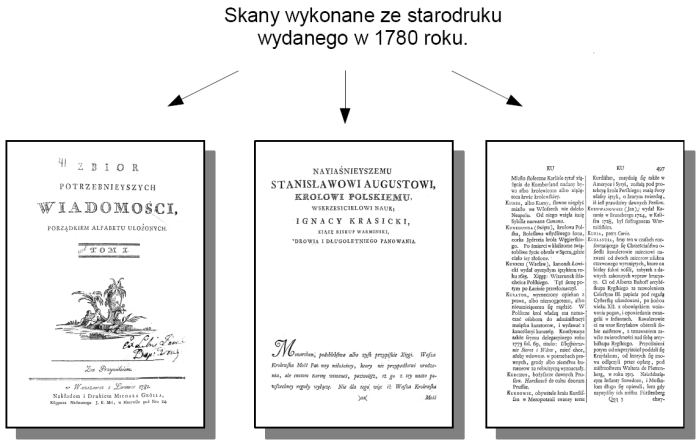
Informacja dotycząca otwarcia biblioteki.
Nowe godziny otwarcia Biblioteki
Szanowne Czytelniczki i Szanowni Czytelnicy,
Biblioteka jest czynna w godzinach 8-16 przy ulicy Twardej 51/55 w Warszawie. Na ten moment nasze magazyny biblioteczne zlokalizowane są poza siedzibą Biblioteki, dlatego zamówienia należy składać drogą mailową na adres This email address is being protected from spambots. You need JavaScript enabled to view it..
Katalogi Biblioteki dostępne są pod następującymi adresami: katalog online (http://miiz.katalog.pan.pl/ipac20/ipac.jsp?profile=) oraz katalogi kartkowe (https://rcin.org.pl/miiz/dlibra/collectiondescription/663). Repozytorium cyfrowe Biblioteki (RCIN) dostępne jest pod adresem: https://rcin.org.pl/miiz/dlibra.



